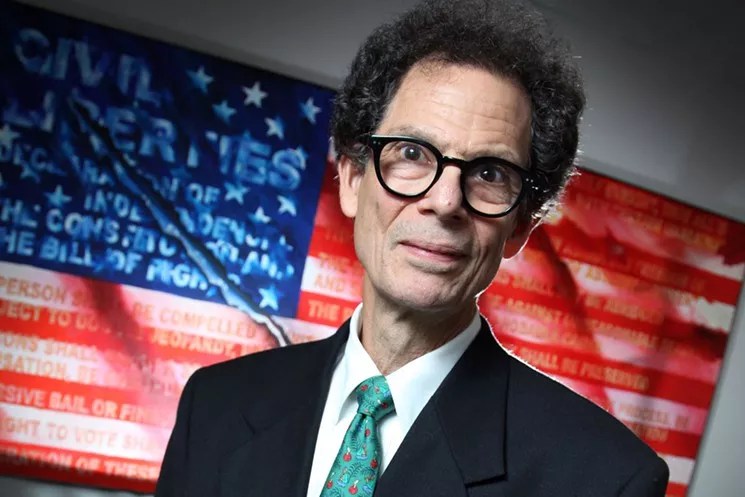
Anthony Camera

Audio By Carbonatix
In September 2016, when the City of Denver announced a temporary directive that would allow for ninety-day expulsions of drug users — proven or suspected — from Denver’s parks, the ACLU of Colorado immediately called the directive “unconstitutional.” The civil-rights organization felt that giving police officers the ability to issue park bans on the mere suspicion of drug use, without any due process or courts adjudicating, was a situation that was ripe for abuse and would disproportionately target people experiencing homelessness.
Yesterday, February 22, a county court judge finally ruled on the matter, siding with the ACLU’s original position.
The case in question involved a man named Troy Holm, who faced up to a year in jail for violating a park suspension he’d been given after being suspected of marijuana use in Confluence Park.
Holm was represented by attorney Adam Frank, and the ACLU became involved with the case by issuing a motion to dismiss the charges against Holm.
On Wednesday, County Court Judge Clarisse Gonzales agreed with the ACLU, saying that the park directive itself violated constitutional rights.
“The court’s ruling affirms a bedrock principle of due process: The government cannot take away our rights without first providing, at a minimum, notice of the accusation and a fair opportunity to defend against it,” says Mark Silverstein, legal director at the ACLU of Colorado.

Mark Silverstein of the ACLU of Colorado.
Anthony Camera
Denver officials say that the directive is in place to counter a growing heroin epidemic, but the ACLU reviewed every suspension notice issued during the first five months of the directive and found that the orders “primarily targeted persons experiencing homelessness who were suspected of simple consumption or possession of marijuana.”
In response to the court’s decision, Denver Parks and Recreation issued on a statement on Wednesday saying, “Denver Parks and Recreation will continue to address the issues of illegal activity and unsafe practices in our public parks. We are reviewing today’s decision with the City Attorney’s Office to determine whether to appeal.”
The temporary directive that was approved by Denver Parks and Recreation’s Executive Director Allegra “Happy” Haynes in September 2016 was set to expire at the end of this month.
The city has said it would like to instate a permanent rule, which would require a public hearing and would be drafted with Wednesday’s court ruling in mind.
In a letter sent on January 25, the ACLU noted that 39 suspension notices had been issued for marijuana-related activities, while only six were for suspected heroin use.
The ACLU argued that the order “doesn’t come close to meeting the announced goal of expelling injection drug users or persons responsible for assaults and threatening behavior,” and that “enforcement of the directive is consistent with a long line of efforts by the City to use aggressive policing to drive people experiencing homelessness – those who have nowhere else to go – out of public spaces in Denver…. These efforts are not only cruel, they are also ineffective.”